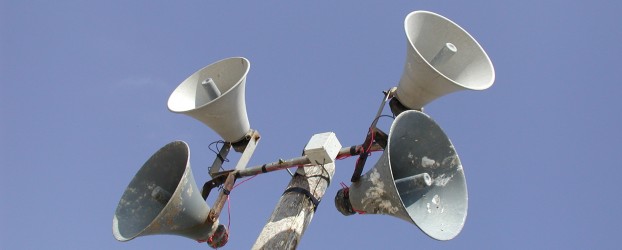
An important but often-overlooked part of creating an audio file for podcasting is preparing the transcript.
Having a transcript is important for accessibility reasons, but also because if they’re anything like me, your audience may not have time to listen to the full audio and or might prefer to skim through the transcript to see what your podcast contains. There’s been some debate recently on whether the number of podcast downloads reflects the number of people who actually listen to the audio itself. I have a directory on my computer chock-full mp3s which have been partially or completely ignored which would lend weight to the argument that many people think podcasts are a good idea, but just don’t have the time to listen to them.
In the case of a recording of a live presentation, preparing a transcript – writing down every last thing that the speaker said – sounds like a lot of effort, especially if you weren’t the speaker. However, for US $0.42 per minute, you can get someone else to do the hard work for you at Casting Words. I did this for the March Web Standards Group meeting in Perth, partly as an experiment to see how it turned out, and I’m really impressed with the results.
Ordering the transcript
After preparing the audio files, I uploaded them to my site and filled out an order on the Casting Words web site. They take either individual audio file addresses, or an RSS feed for larger orders. They supply you with an RSS feed address which you can use to track the progress of your order, but as mine was small (2 files) it’s less useful than it would be for, say a whole conference worth of audio casts.
I made my order Friday night my time, and was impressed to find the first transcript in my email when I checked Saturday morning. The second email arrived around 18 hours later, on Sunday morning.
Transcript format
The transcripts arrived as text in the email, with links to rtf, plaint text and html versions on their web site. The HTML was marked up with cite and blockquote elements, which was nice, but with some incorrect nesting so it did not validate. Having a HTML version as a bit of a bonus as I was expecting to have to mark it up myself, but I did have to do quite a bit or reworking to fix the nesting and remove some classes that were also in there.
Quality of the transcript
It was never going to be an easy task: us Aussie tend to speak a bit funny, after all. But on the whole, the quality of the transcribed text was excellent. With the technical topics, I fully expected to have to make some corrections – I actually conned the speakers into doing it themselves – but surprisingly little had to be done. We did a bit of surgery on Nick’s to take out some parts which weren’t relevant to the topic – there were some issues with the mouse he was using, and the presentation kept jumping back to the start. I think some editing is acceptable as the purpose of this kind of transcript is to provide an alternate media version of the audio, not a word-for-word record of what was said.
To summarise…
Overall the Casting Words experience was excellent and I would recommend the service to anyone who wishes to provide transcriptions of podcasts. It was very affordable – the whole exercise cost me AUD $17, for a little over 30 minutes of audio. The results were speedy and accurate, less than 36 hours all up with very few alterations required – and while it would have been nice to cut and paste the html markup directly into my page without having to edit it, having multiple versions of the output was handy.

